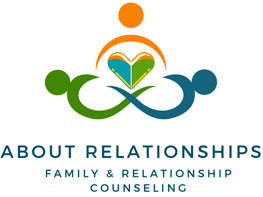Tips for Conscious Communication & Co-Parenting
1. Avoid voicing negative opinions about your co-parent to your child or around your child.
A child’s identity is largely influenced by their primary caregivers. Depending on the dynamics of who’s parenting them, kids often see themselves as ‘half mom/half dad.’ Or in same-sex couples, ‘Half mom/ half mom. Half dad/dad.’ This can get tricky when parents become separated and eventually divorced. They may unconsciously internalize what you're saying about your co-parent as a part of who they are.
2. Don’t make negative comparisons of your ex and your child.
“There are times you may see glimpses of your ex in your kids, and not always in a good way. When their room is a mess you might have slipped up and said, “You never pick up after yourself, you’re just like your dad,” or when they’ve pushed back on a rule you might have shot back with, “You’re just as bull-headed as your mom.” (McGhee, 2020)
When parents split or get divorced, the blinders go on. It's easy to focus on the negative, petty stuff you don’t like about one another. Bad trumps good, negative wins out over positive. But where does that leave the kids?
Remember, kids think of themselves as half mom and half dad, which is the way it should be. How can they feel good about who they are when the people they identify with the most have nothing positive to say about one another?
3. Everyone (including parents) have things that are really great about them and some things that are not so great. Put more energy into pointing out all the great ways your kids are like you both.
How you relate to each other means everything to your kids. Do your best to make the love you have for your children greater than your need to be right, proud, or in control.
It won’t always be easy. Sometimes you’ll slip up and say the wrong thing or do the wrong thing. It’s okay, you’re only human. We all are. No one gets it right all the time.
"The good news is, doing the right thing all the time isn’t a huge deal. In fact, small, simple shifts can make a world of difference for you and your kids.” (McGhee, 2020)
